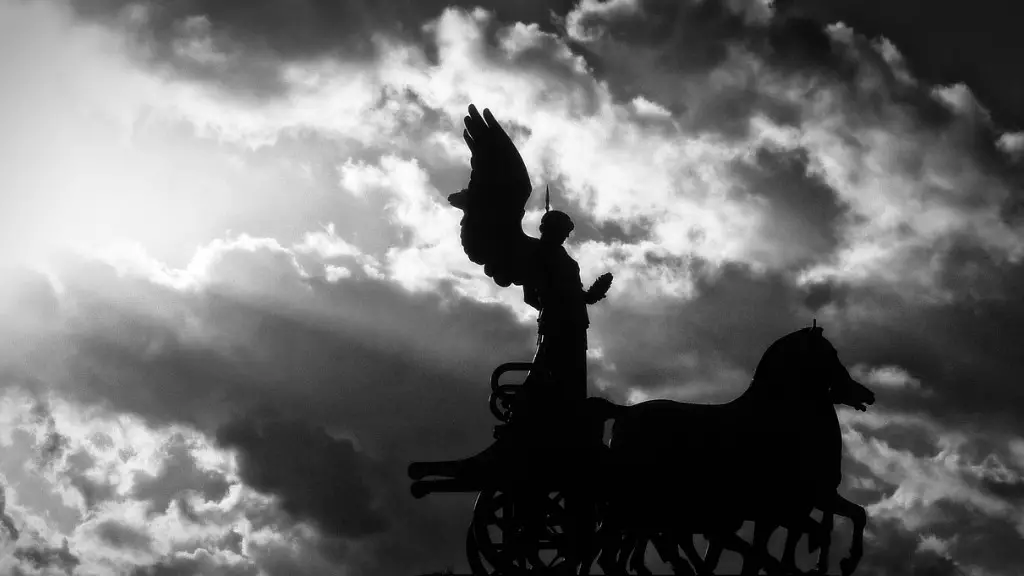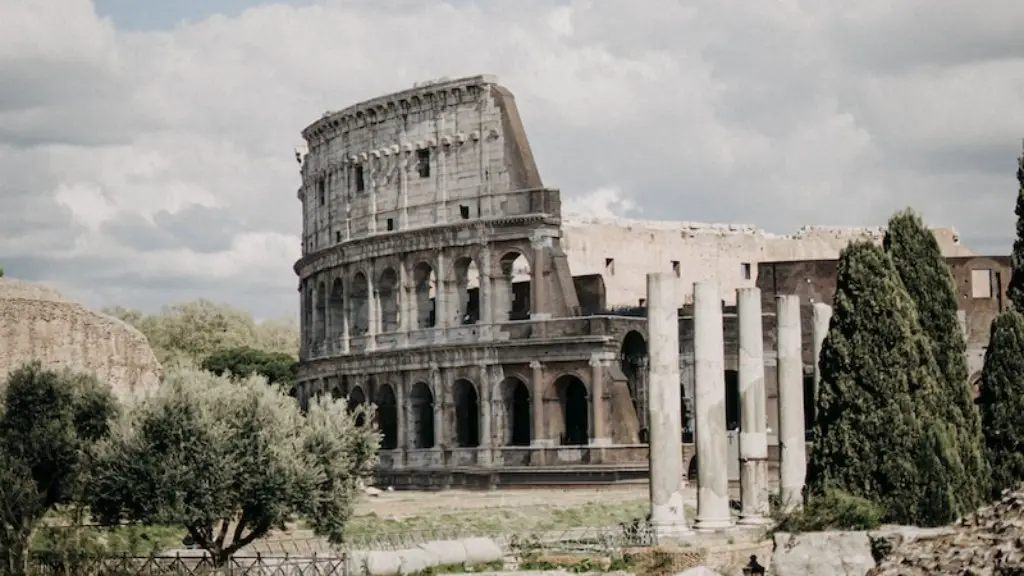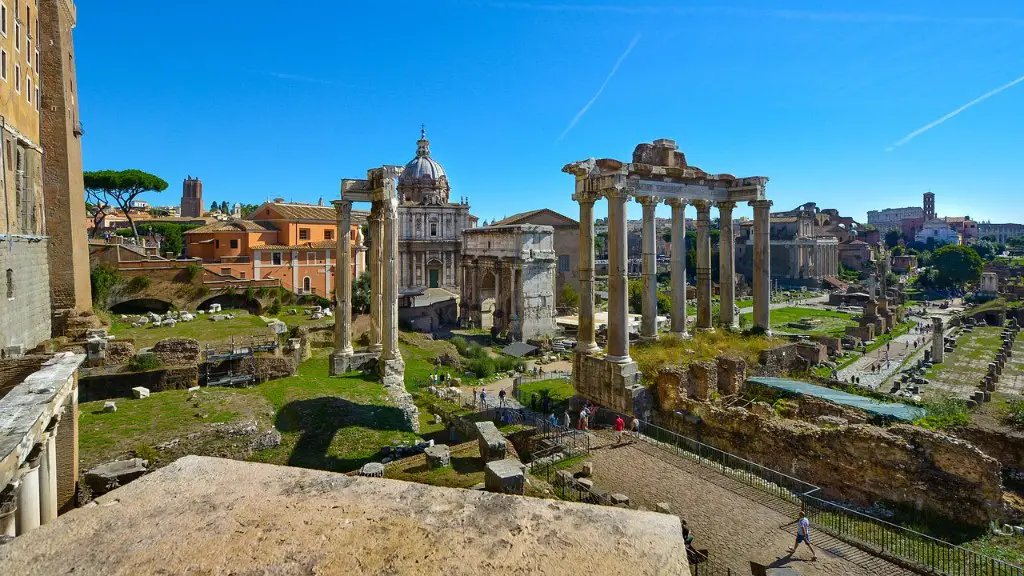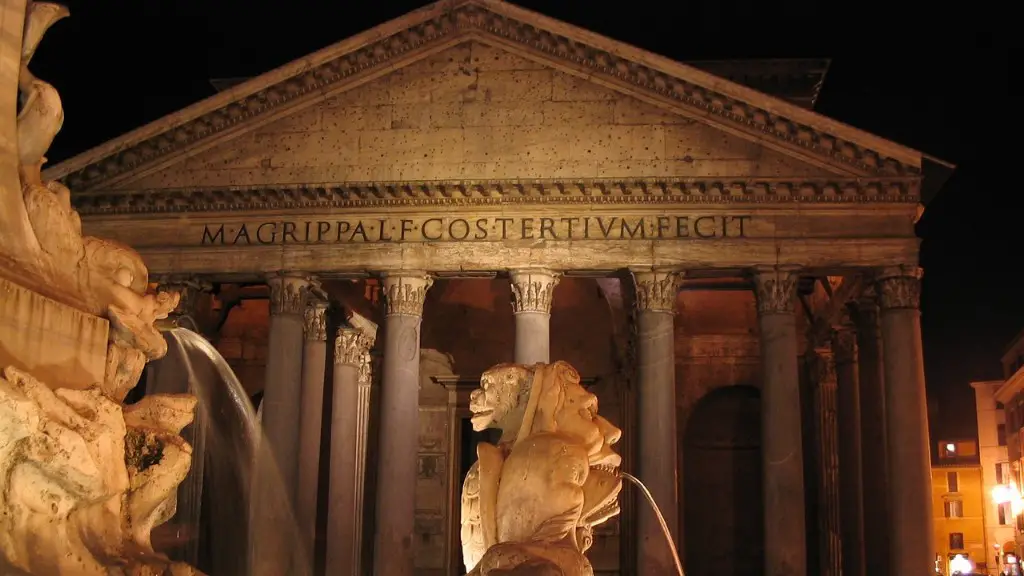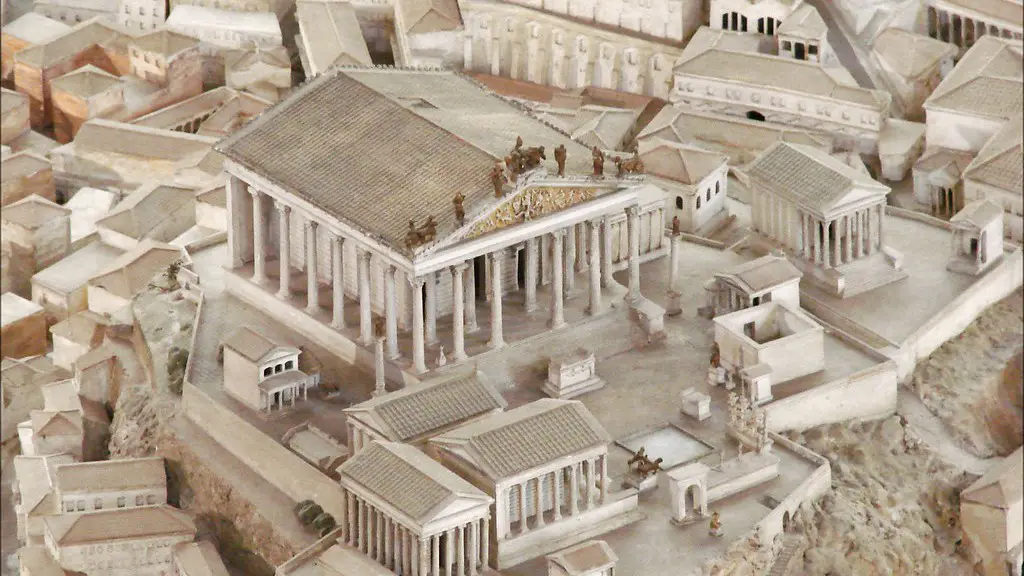The ancient Romans used mythology to explain the world around them. They believed that the gods and goddesses controlled everything in the world. They used mythology to explain natural disasters, like floods and earthquakes. They also used mythology to explain why some people were born with special powers or abilities.
Mythology was used in ancient Rome to explain the world and everything in it. The gods and goddesses represented different aspects of life, and their stories were used to teach lessons about right and wrong, war and peace, and love and hate. Mythology was also used to entertain, and the Roman people enjoyed hearing about the adventures of their favorite gods and heroes.
How did Romans use mythology?
Many of the stories that are a part of Roman mythology aim to explain cultural and social virtues. These stories revolve around a central character that served his state or nation and performed feats of bravery or intellect. These stories were used by the Romans to teach their children about important values such as loyalty, courage, and wisdom.
The Roman and Greek cultures were very different, but when they met, the Romans were impressed by Greek mythology and adopted many of their myths and gods into their own beliefs and culture. This had a big impact on Roman society, as religion and myth became intertwined. The Romans worshipped thousands of gods and believed that there was a god or spirit for everything in nature. This had a big impact on the way they lived their lives and shaped their society.
Was there mythology in ancient Rome
The Roman Empire was primarily a polytheistic civilization, which meant that people recognized and worshiped multiple gods and goddesses. The main god and goddesses in Roman culture were Jupiter, Juno, and Minerva. Jupiter was the king of the gods, Juno was the queen of the gods, and Minerva was the goddess of wisdom. Roman people would often pray to these gods and goddesses for help with various problems and challenges in their lives.
The Romans adopted many of the Greek gods as their own Religion and myth became one. Under this Greek influence, the Roman gods became more anthropomorphic – with the human characteristics of jealousy, love, hate, etc.
How was mythology used?
Myths are stories with a moral or lesson attached to them. They were used to teach people about something important and meaningful. Often, myths were used to teach people about events that they could not always understand, such as illness and death, or earthquakes and floods. Myths helped people to make sense of the world around them.
The Romans believed in a pantheon of gods and goddesses, as well as numerous spirits and guardian deities. They believed that every natural and man-made object had its own spirit or god. This meant that there were guardian gods for trees, rocks, streams, bridges, and everything else. There were also guardian gods for your house and for the different parts of the house.
How did Greek culture influence the development of the Roman Republic?
Rome was greatly influenced by Greek culture, adopting and expanding upon many aspects of it. Most Roman gods are borrowed from Greek mythology and given Latin names. The Romans sent a delegation to Greek cities to learn about their laws and legislation, leading to the first important piece of Roman law—the Twelve Tables.
Greek religion had a great impact on Rome; the Romans essentially adopted their gods and goddesses from the Greeks. This meant that they shared similar roles and responsibilities. For example, the Greek Hades became the Roman Pluto, god of the underworld. The Romans were also inspired by Greek art.
What events in Roman mythology were most important to the Romans
There are many famous myths and legends associated with Rome. One of the most famous is the story of Romulus and Remus, the founders of Rome. Another well-known legend is that of Aeneas, a Trojan prince who was said to have fled his city when it was sacked by the Greeks and eventually made his way to Italy, where he founded the city of Rome.
The Rape of the Sabine Women is another popular legend. This story tells of how the early Romans kidnapped the women of the Sabine tribe in order to marry them and have children.
Numa Pompilius is said to have been the second king of Rome. He was a wise and just ruler who was known for his religious beliefs.
Scaevola was a Roman hero who was said to have been invulnerable to fire. He is said to have put his hand in a fire in order to prove his courage to an enemy leader.
Coriolanus was a Roman general who was exiled from Rome after he was accused of treason. He later led an army against Rome, but was defeated and killed.
Cybele was a major goddess in the Roman pantheon. She was associated with the Earth and fertility.
There are several similarities between the Roman and Greek mythology, such as the pantheon of gods, the tales of creation, and the afterlife. The Roman gods are often just re-imaginings of the Greek gods, with different names. For example, the Roman god Jupiter is the counterpart of the Greek god Zeus. The main difference between the two is that the Romans added Greek stories for their Roman gods, making the mythology even more similar.
Did ancient Rome believe in Greek mythology?
The Romans were very influenced by the Greeks and their gods. Many of the gods that were prominent in Ancient Rome were adapted from earlier Greek mythology. This was because there were many Greek colonies in Rome’s lower peninsula whose ideas filtered into Roman culture. The Romans incorporated these gods into their religion and made them their own.
Greek mythology is a reflection of past civilizations and provides us with crucial insights into historical events, ancient cultures, relationships, human alliances and much more. By reading Greek mythology, we can learn about the values and beliefs of the ancient Greeks, and how they viewed the world around them. Additionally, Greek mythology can teach us about universal human experiences, such as love, loss, and betrayal.
When did Roman mythology start
The principal sources of information about Roman mythology appear to have been written during the early years of the empire, between about 20 bce and 20 ce. The poet Virgil is thought to have produced Rome’s national epic, the Aeneid, which drew on myths that linked the city’s founding with Greek deities and legends.
A mythology or belief system often concerns supernatural beings/powers of a culture, provides a rationale for a culture’s religion and practices, and reflects how people relate to each other in everyday life. It is often said that mythology is a reflection of a culture’s values and beliefs.
Why is the importance of mythology?
The myths and legends of a society play a very important role in its culture and way of life. Most cultural activities and beliefs can be traced back to a society’s stories. Myths and legends provide a basis for moral boundaries and establish the basic guidelines for the way people within a society live. They help to define what is right and wrong, and what is acceptable and unacceptable behaviour. Without these stories, society would be much less cohesive and cohesive, and would likely fall apart.
The religion of ancient Rome was polytheistic, meaning that they worshipped many gods. Each culture that settled in Rome brought their own gods and forms of worship, resulting in a varied pantheon of deities. Spirits were also worshipped, with each natural element (rivers, trees, fields, buildings, etc.) having its own spirit or numen.
What is Roman mythology summary
Mythology was used to attempt to explain the world around them, and the stories element served as a way to entertainment. Roman mythology is heavily influenced by the Greeks, as the Romans borrowed heavily from the Greek pantheon of gods and goddess. However, Roman mythology is not a direct copy of Greek mythology, as the Romans had many gods and goddesses that were unique to their culture. Roman mythology is a complex and fascinating subject, and it is well worth studying for anyone interested in ancient cultures.
Ancient Greece had a profound influence on the Roman Empire. The empire borrowed heavily from the Greeks in terms of warfare, religion, literature, art, and architecture. This borrowing helped to shape the future of the empire and the world at large.
Conclusion
In ancient Rome, mythology was used to explain natural phenomena and to tell stories about the gods and heroes. Myths were also used to legitimize the social order and political power.
The ancient Romans used mythology in a number of ways. One was to explain natural phenomena, such as why the sun moved across the sky. Another was to explain the origins of their civilization, such as the story of Romulus and Remus. mythology was also used to entertain, with stories of gods and heroes that were often adapted from Greek sources. Ultimately, mythology served as a way for the ancient Romans to make sense of their world.

